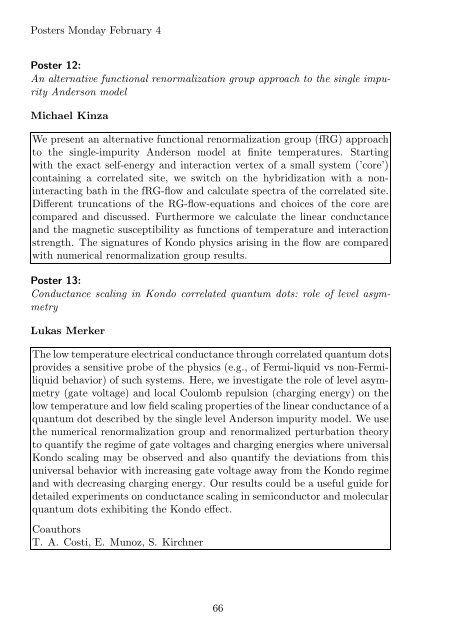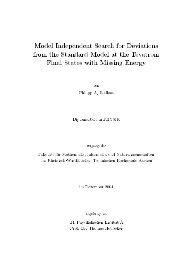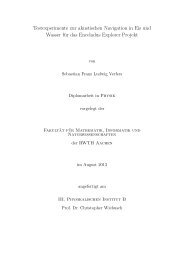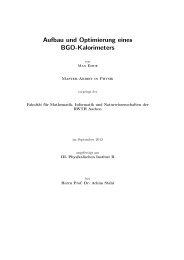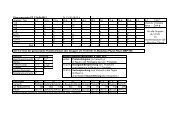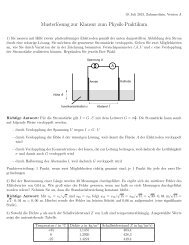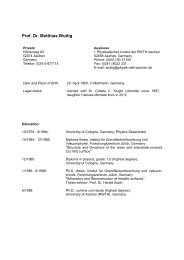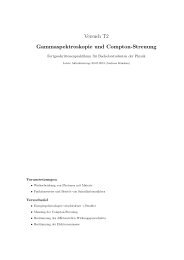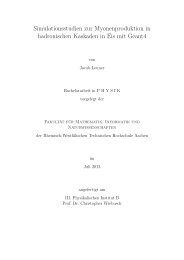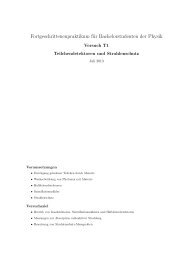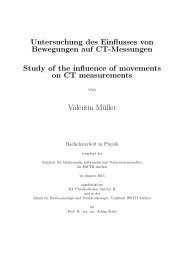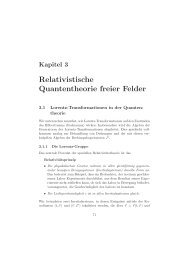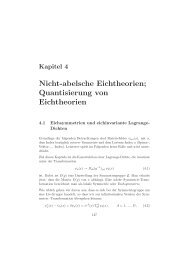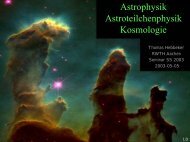Workshop book - Physikzentrum der RWTH Aachen - RWTH Aachen ...
Workshop book - Physikzentrum der RWTH Aachen - RWTH Aachen ...
Workshop book - Physikzentrum der RWTH Aachen - RWTH Aachen ...
Create successful ePaper yourself
Turn your PDF publications into a flip-book with our unique Google optimized e-Paper software.
Posters Monday February 4<br />
Poster 12:<br />
An alternative functional renormalization group approach to the single impurity<br />
An<strong>der</strong>son model<br />
Michael Kinza<br />
We present an alternative functional renormalization group (fRG) approach<br />
to the single-impurity An<strong>der</strong>son model at finite temperatures. Starting<br />
with the exact self-energy and interaction vertex of a small system (’core’)<br />
containing a correlated site, we switch on the hybridization with a noninteracting<br />
bath in the fRG-flow and calculate spectra of the correlated site.<br />
Different truncations of the RG-flow-equations and choices of the core are<br />
compared and discussed. Furthermore we calculate the linear conductance<br />
and the magnetic susceptibility as functions of temperature and interaction<br />
strength. The signatures of Kondo physics arising in the flow are compared<br />
with numerical renormalization group results.<br />
Poster 13:<br />
Conductance scaling in Kondo correlated quantum dots: role of level asymmetry<br />
Lukas Merker<br />
The low temperature electrical conductance through correlated quantum dots<br />
provides a sensitive probe of the physics (e.g., of Fermi-liquid vs non-Fermiliquid<br />
behavior) of such systems. Here, we investigate the role of level asymmetry<br />
(gate voltage) and local Coulomb repulsion (charging energy) on the<br />
low temperature and low field scaling properties of the linear conductance of a<br />
quantum dot described by the single level An<strong>der</strong>son impurity model. We use<br />
the numerical renormalization group and renormalized perturbation theory<br />
to quantify the regime of gate voltages and charging energies where universal<br />
Kondo scaling may be observed and also quantify the deviations from this<br />
universal behavior with increasing gate voltage away from the Kondo regime<br />
and with decreasing charging energy. Our results could be a useful guide for<br />
detailed experiments on conductance scaling in semiconductor and molecular<br />
quantum dots exhibiting the Kondo effect.<br />
Coauthors<br />
T. A. Costi, E. Munoz, S. Kirchner<br />
66


